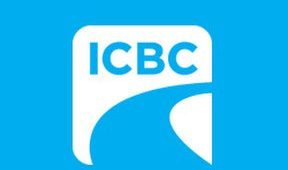A review of ICBC’s financial situation since the start of the provincial state of emergency shows both positive and negative financial impacts on ICBC’s bottom line.
With almost no capital reserves to withstand fluctuations and volatility in the markets, it is too early to determine whether the pandemic will result in benefits to pass on to drivers.
“ICBC is in a challenging position due to the pandemic, faced with uncertain and unprecedented turmoil in the markets, combined with no financial buffer as a result of the old government’s mismanagement,” said David Eby, Attorney General. “There are more than 10 months to go in the fiscal year and many unknowns, but if ICBC’s bottom line ends up better than expected, any surplus will be used to benefit B.C. drivers. In the meantime, we’re focused on supporting people through payment deferrals and making it easier for people to cancel or change their insurance, and on bringing in Enhanced Care coverage next year to save people an average of $400 on their insurance.”
If ICBC’s net income results are better than forecast for 2020-21, any additional net income will benefit customers. Any decisions on the use of additional net income of ICBC for the year due to lower claims resulting from the pandemic will be made at the end of the fiscal year. Options could include rebuilding the financial capital health of ICBC to reduce longer-term pressure on rates, providing a one-time direct relief to customers or any combination thereof.
ICBC’s report on the impacts of COVID-19 examined a period of about six weeks after the provincial state of emergency was declared and people were advised to stay home (March 15 to May 2). It found that over that time:
- ICBC opened 46% fewer accident claims (including claims for both damage to vehicles and for injuries) compared to the same time last year, with an average weekly reduction of 7,200 claims. This drop in the number of claims amounts to approximately $158 million in savings for ICBC. However, claim numbers are on the rise again as more vehicles return to B.C. roads;
- more than 150,000 customers changed their insurance policies by cancelling their policy (103,700) or lowering their rate class (57,561), resulting in a projected $283-million decline in written insurance premiums compared to what would normally be received for that period; and
- ICBC has seen a decrease in the value of its investment portfolio due to the unprecedented downturn in the financial markets, putting pressure on its bottom line. Some of this has already been seen at the end of ICBC’s 2019-20 fiscal year, and early indications suggest the impact could exceed $1 billion in fiscal 2020-21, depending on the length and scope of the global market downturn. The final impact will be determined at the end of fiscal 2020-21.
“ICBC waiving cancellation and re-plating fees alone during the pandemic has saved customers around $5 million, and we will continue to work with those drivers facing financial hardship,” said Nicolas Jimenez, ICBC president and CEO. “We’re committed to delivering essential services and ensuring the safety of our customers, employees and partners. And given these uncertain times, we have a responsibility to consider many factors when making long-term decisions that could adversely affect ICBC’s bottom line – and customers’ insurance premiums – in the future.”
ICBC remains focused on the longer-term goal of implementing enhanced care coverage and delivering an average 20% rate reduction in 2021 should the legislation be passed. As ICBC transitions to this new care-based model, no basic rate change was needed this year. The 0% basic rate change that took effect on April 1, 2020, is the lowest in nearly a decade.
ICBC has taken a number of steps to support its customers during this challenging time. It has waived cancellation and re-plating fees, provided 90-day deferrals and helped customers to cancel or change their coverage at no charge, among many other initiatives designed to ease the financial burden people may be facing.
 Desi Today Magazine
Desi Today Magazine




